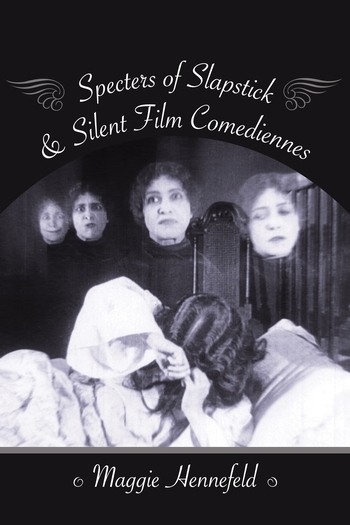Judith Butler on being Jewish and criticizing Israel
So, on the one hand, Jews who are critical of Israel think perhaps they cannot be Jewish anymore of Israel represents Jewishness; and on the other hand, those who seek to vanquish anyone who criticizes Israel equate Jewishness with Israel as well, leading to the conclusion that the critic must be anti-Semitic or, if Jewish, self-hating. My scholarly and public efforts have been directed toward getting out of this bind. — Judith Butler
Our highlighted book this week is Judith Butler’s Parting Ways: Jewishness and the Critique of Zionism. You can enter our giveaway for a chance to win a FREE copy!
The Theodor W. Adorno Prize is given every three years by the city of Frankfurt “to further and acknowledge outstanding performances in the fields of philosophy, music, theatre and film.” Past winners have included such luminaries as Jürgen Habermas, Jean-Luc Goddard, and Jacques Derrida. This year’s prize is being awarded to Judith Butler. However, the Jerusalem Post recently published an article critical of Butler and the awarding of the prize, “Frankfurt to award US advocate of Israel boycott.” Monday, Mondoweiss published a letter from Butler herself responding to the criticisms she faced in the Jerusalem Post article on her stance on the Israeli-Palestinian conflict.
Butler begins her letter by listing the three main criticisms leveled against her in the article in the Jerusalem Post:
The accusations against me are that I support Hamas and Hezbollah (which is not true) that I support BDS (partially true), and that I am anti-Semitic (patently false). Perhaps I should not be as surprised as I am that those who oppose my receiving the Adorno Prize would seek recourse to such scurrilous and unfounded charges to make their point. I am a scholar who gained an introduction to philosophy through Jewish thought, and I understand myself as defending and continuing a Jewish ethical tradition that includes figures such as Martin Buber and Hannah Arendt…. I was taught at every step in my Jewish education that it is not acceptable to stay silent in the face of injustice. Such an injunction is a difficult one, since it does not tell us exactly when and how to speak, or how to speak in a way that does not produce a new injustice, or how to speak in a way that will be heard and registered in the right way. My actual position is not heard by these detractors, and perhaps that should not surprise me, since their tactic is to destroy the conditions of audibility.
Butler is particularly disturbed by what she sees as the silencing tactics of many of her critics.
It is untrue, absurd, and painful for anyone to argue that those who formulate a criticism of the State of Israel is anti-Semitic or, if Jewish, self-hating. Such charges seek to demonize the person who is articulating a critical point of view and so disqualify the viewpoint in advance. It is a silencing tactic: this person is unspeakable, and whatever they speak is to be dismissed in advance or twisted in such a way that it negates the validity of the act of speech. The charge refuses to consider the view, debate its validity, consider its forms of evidence, and derive a sound conclusion on the basis of listening to reason. The charge is not only an attack on persons who hold views that some find objectionable, but it is an attack on reasonable exchange, on the very possibility of listening and speaking in a context where one might actually consider what another has to say.
A focus of Butler’s recent work, including Parting Ways, addresses her concern with the current belief that “the State of Israel represents Jewishness for our times, and that if one identifies as a Jew, one supports Israel and its actions”:
[T]here have always been Jewish traditions that oppose state violence, that affirm multi-cultural co-habitation, and defend principles of equality, and this vital ethical tradition is forgotten or sidelined when any of us accept Israel as the basis of Jewish identification or values. So, on the one hand, Jews who are critical of Israel think perhaps they cannot be Jewish anymore of Israel represents Jewishness; and on the other hand, those who seek to vanquish anyone who criticizes Israel equate Jewishness with Israel as well, leading to the conclusion that the critic must be anti-Semitic or, if Jewish, self-hating. My scholarly and public efforts have been directed toward getting out of this bind. In my view, there are strong Jewish traditions, even early Zionist traditions, that value co-habitation and that offer ways to oppose violence of all kinds, including state violence. It is most important that these traditions be valued and animated for our time – they represent diasporic values, struggles for social justice, and the exceedingly important Jewish value of “repairing the world” (Tikkun).
Butler takes particular issue with how her views of Hamas and Hezbollah have been twisted in the media:
My remarks on Hamas and Hezbollah have been taken out of context and badly distort my established and continuing views. I have always been in favor of non-violent political action, and this principle has consistently characterized my views. I was asked by a member of an academic audience a few years ago whether I thought Hamas and Hezbollah belonged to “the global left” and I replied with two points. My first point was merely descriptive: those political organizations define themselves as anti-imperialist, and anti-imperialism is one characteristic of the global left, so on that basis one could describe them as part of the global left. My second point was then critical: as with any group on the left, one has to decide whether one is for that group or against that group, and one needs to critically evaluate their stand. I do not accept or endorse all groups on the global left. Indeed, these very remarks followed a talk that I gave that evening which emphasized the importance of public mourning and the political practices of non-violence, a principle that I elaborate and defend in three of my recent books: Precarious Life, Frames of War, and Parting Ways. I have been interviewed on my non-violent views by Guernica and other on-line journals, and those views are easy to find, if one wanted to know where I stand on such issues. I am in fact sometimes mocked by members of the left who support forms of violent resistance who think I fail to understand those practices. It is true: I do not endorse practices of violent resistance and neither do I endorse state violence, cannot, and never have. This view makes me perhaps more naïve than dangerous, but it is my view. So it has always seemed absurd to me that my comments were taken to mean that I support or endorse Hamas and Hezbollah! I have never taken a stand on either organization, just as I have never supported every organization that is arguably part of the global left – I am not unconditionally supportive of all groups that currently constitute the global left. To say that those organizations belong to the left is not to say that they should belong, or that I endorse or support them in any way.
Finally, Butler also addresses her (limited) support of the BDS:
I do support the Boycott, Divestment, and Sanctions movement in a very specific way. I reject some versions and accept others. For me, BDS means that I oppose investments in companies that make military equipment whose sole purpose is to demolish homes. It means as well that I do not speak at Israeli institutions unless they take a strong stand against the occupation. I do not accept any version of BDS that discriminates against individuals on the basis of their national citizenship, and I maintain strong collaborative relationships with many Israeli scholars. One reason I can endorse BDS and not endorse Hamas and Hezbollah is that BDS is the largest non-violent civic political movement seeking to establish equality and the rights of self-determination for Palestinians. My own view is that the peoples of those lands, Jewish and Palestinian, must find a way to live together on the condition of equality. Like so many others, I long for a truly democratic polity on those lands and I affirm the principles of self-determination and co-habitation for both peoples, indeed, for all peoples. And my wish, as is the wish of an increasing number of Jews and non-Jews, is that the occupation come to an end, that violence of all kinds cease, and that the substantial political rights of all people in that land be secured through a new political structure.




